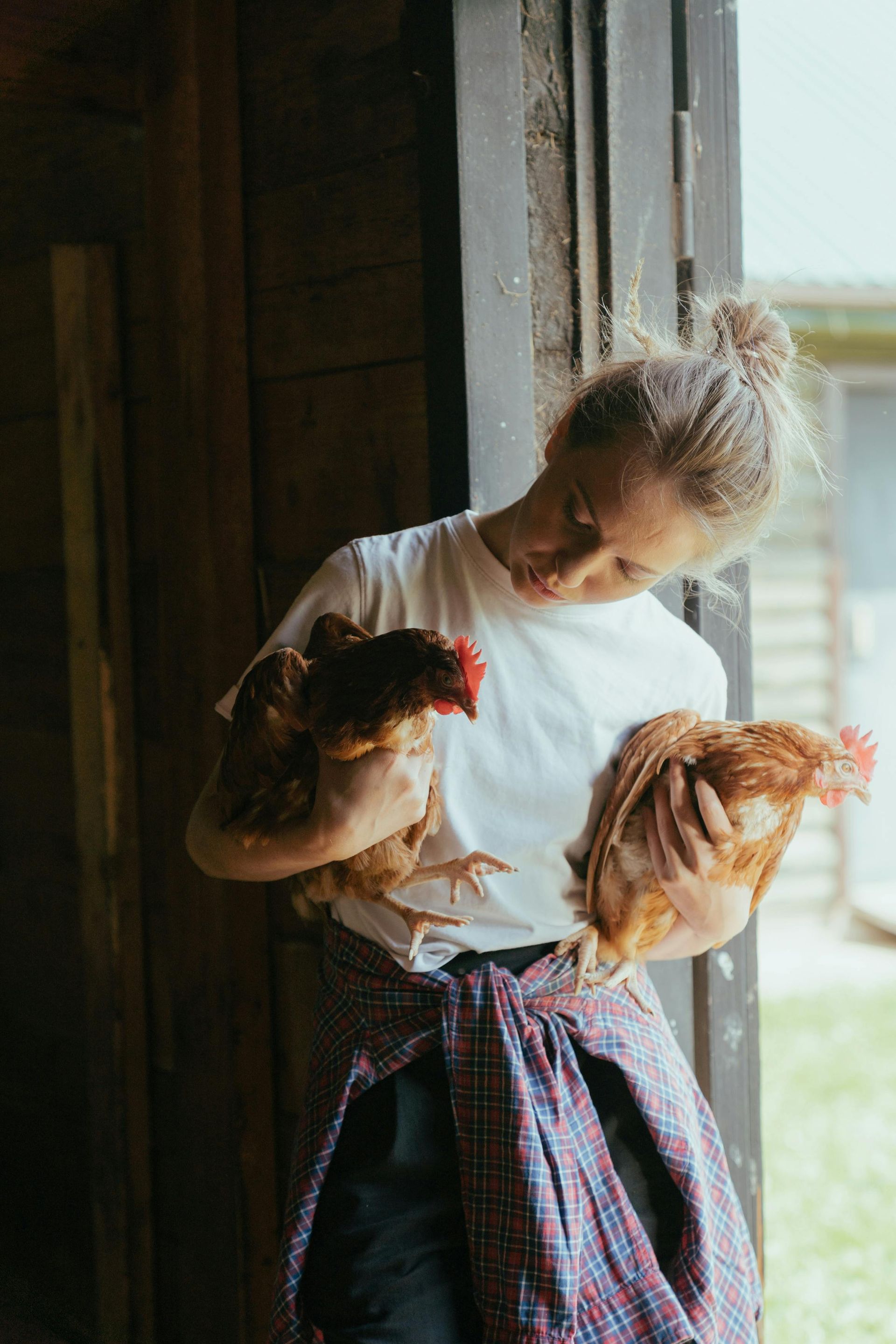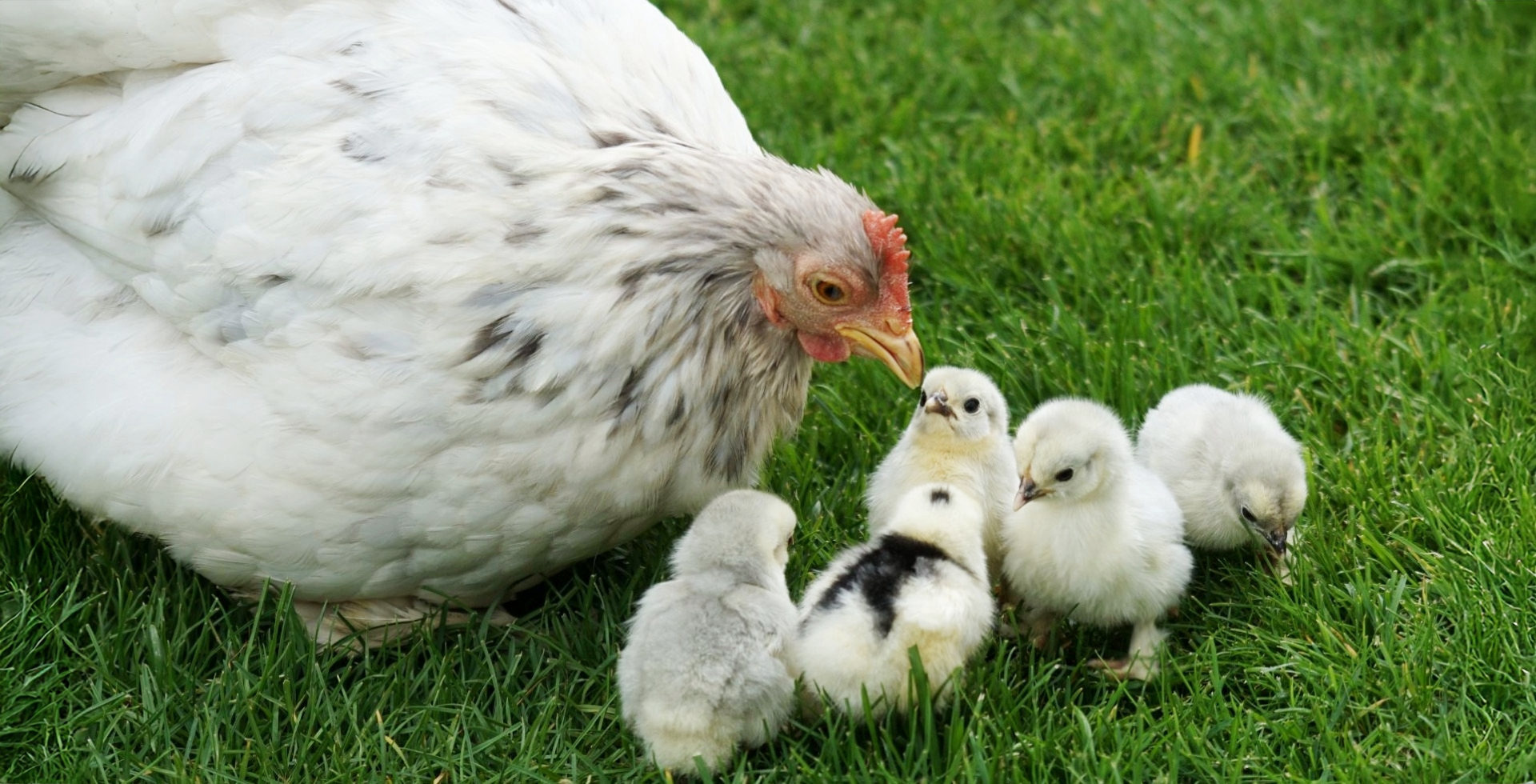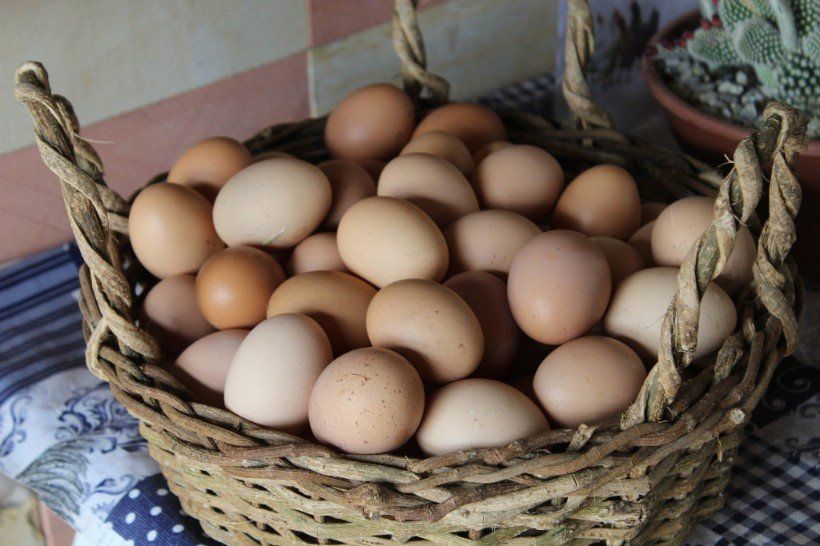Hatching at Home
Margaret Manchester • 6 June 2020
Things to consider
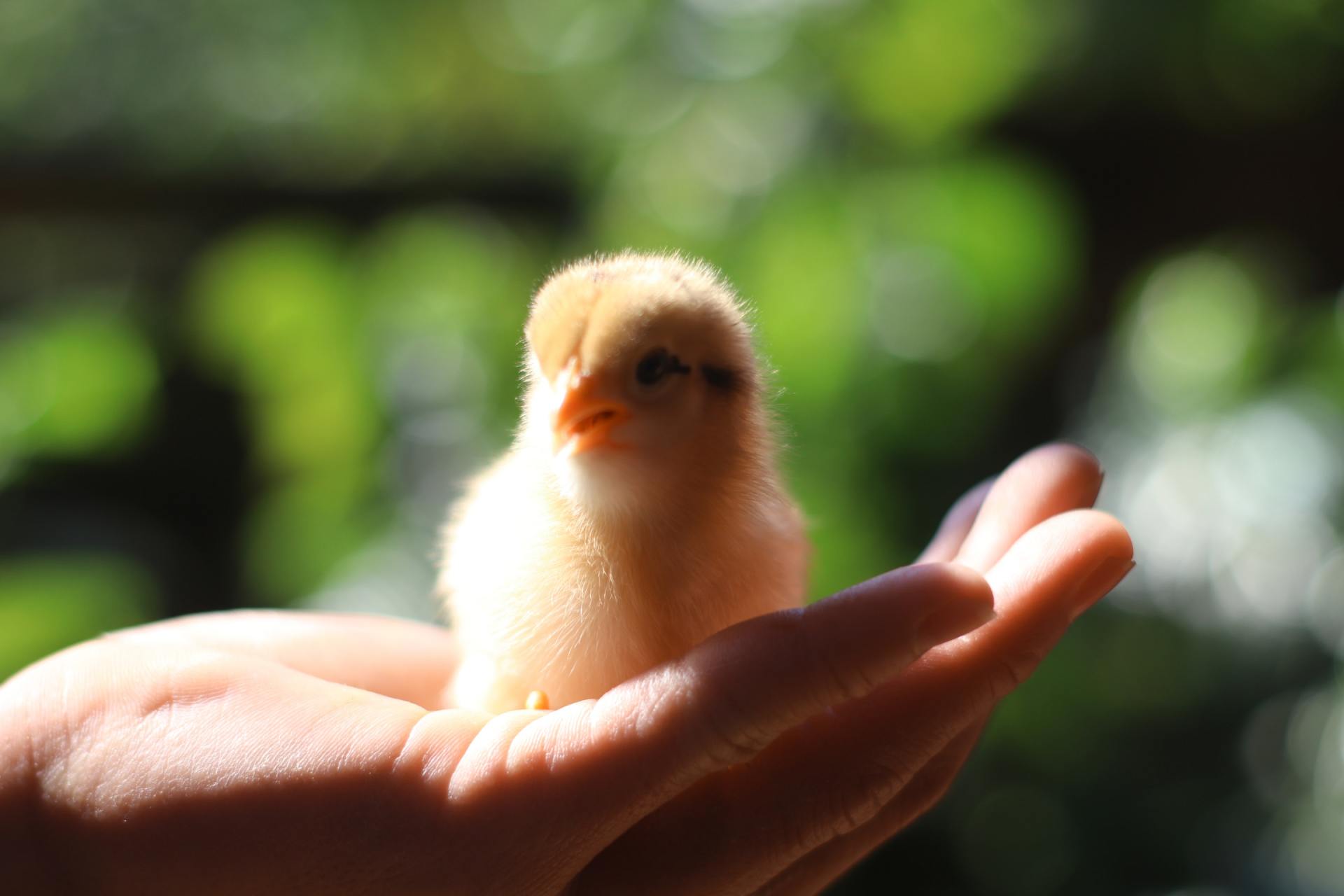
Always a popular activity in Spring, the year 2020 has seen a record number of people wanting to hatch chicks at home. This increase is partly due to the COVID-19 lockdown, which has had parents tearing their hair out looking for projects to entertain children in their homes, and hatching chicks fits the bill. A fun project, yes, but not without its pitfalls.
We would like to share our vast experience of hatching and rearing chicks at Durham Hens to ensure hatching is a good experience for you.
Firstly, you’ll need an incubator to keep the fertile eggs at a constant 37.5°C for 21 days until the eggs hatch. This is often where the biggest mistake is made. You can find incubators online for as little as £20 including delivery, which sounds great, but many of these do not keep a constant temperature, and some are fire hazards. You’re likely to waste all the money spent on the incubator and eggs, and have disappointed children. It is worth investing in a reliable incubator, such as the Brinsea range which starts at £79.
Where you place the incubator in your home is important. It should not be in direct sunlight, near a radiator or in a draft. The room should be kept at a pleasant temperature and should not fluctuate between day and night. Any one of these factors can prevent incubators from keeping the constant temperature that eggs require.
Test your incubator is working correctly. Place a medical thermometer where the eggs will be placed and check that it is the same as the reading on the display. If not, adjust the thermostat so that the medical thermometer inside the incubator reads 37.5°C. An incorrect display reading is a frequent problem encountered by novice hatchers.
Once you’re happy with your set up, you’ll need to source some fertile eggs. Durham Hens is the largest supplier of mail-order fertile eggs in the UK, sending out hundreds per day at peak times. The eggs are posted in cardboard boxes, with purpose-made soft foam inserts which cushion and protect the eggs from damage. We constantly check the fertility of our breeding stock by candling their eggs in our hatchery, and only send out eggs that we know have a good chance of developing into chicks.
When you start out, you need to have realistic expectations. Even with a good incubator in a suitable place, you may find that not all of the eggs will hatch. Some eggs may not have been fertilised, some may not develop properly and some chicks may not make it out of the egg.
A 100% hatch rate is exceptional, a 75% hatch rate is good, a 50% hatch rate is OK. Less than 50% points to a problem with either the eggs, the incubator, or its setting. When the incubation process works well, we expect customer to hatch four or five live chicks from six eggs.
If things go badly wrong, such as a power cut or incubator failure, Durham Hens usually have young chicks available for sale.
It is probable that some of the chicks you’ll hatch will be male. Male chicks grow into cockerels - that will crow. If you are unable to keep cockerels where you live, please ensure that you can either rehome them or dispatch them humanely. If you can’t deal with this, consider buying female chicks to rear rather than eggs to hatch.
Once the chicks hatch out, they’ll need to be kept in a secure container with air holes, but no drafts. The floor surface should be non-slip as they can easily damage their legs when they are young. They’ll need a heat source, such as the Brinsea Ecoglow brooder, to keep them warm. Please note that normal room temperature is not warm enough for newly hatched chicks. They’ll also need a chick drinker with fresh water, and a chick feeder with chick crumb. Ensure the container is safe from other pets - cats, and some dogs, will kill chicks. Durham Hens stocks a brooder kit that includes everything you'll need.
Children will obviously be excited by the arrival of fluffy chicks. Show them how to handle the chicks gently and always supervise young children when they hold them. Holding too tightly or squeezing can cause internal damage.
When done properly, hatching chicks at home can be an incredible experience for the whole family, and the memory is one that will stay with children for a lifetime.
For further reading, our website contains advice pages on hatching and rearing chicks.
www.durhamhens.co.uk
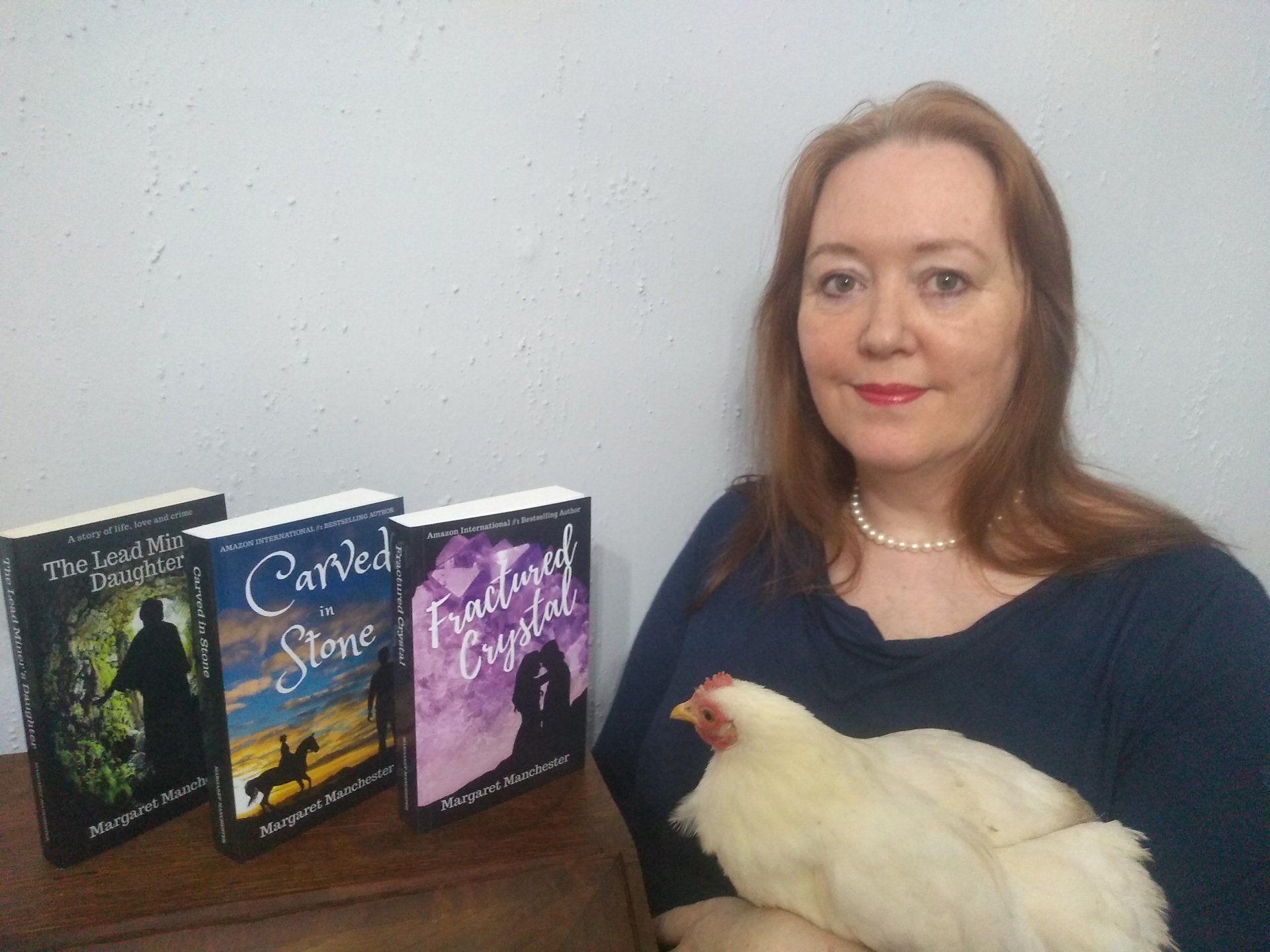
Margaret Manchester has been named one of the UK’s most 100 inspirational female entrepreneurs by Small Business Britain’s f:Entrepreneur ‘#ialso100’ campaign. Margaret Manchester founded Durham Hens Limited in the north of England in 2007. Experiencing rapid growth in recent years, this award-winning business retails quality hens and poultry supplies to the pet and smallholder markets. In addition to selling modern hybrid layers, the company has a breeding programme to help preserve traditional breeds. They post rare breed hatching eggs throughout the UK in special packaging. As well as being a successful businesswoman, Margaret writes historical romance. Her debut novel ‘The Lead Miner’s Daughter’ received excellent reviews and quickly became an international best-seller. Her books have been likened to those of the great Catherine Cookson. Margaret is also the chairperson for ‘Friends of Killhope’, a charity involved with industrial heritage in the North Pennines. She was instrumental in saving the last mining headgear in Durham from demolition. The headframe at Groverake is now an iconic landmark in a county steeped in mining history. 'It’s an honour to be selected to join this prestigious group of high-achieving female entrepreneurs,' said Margaret. 'I’m thrilled. I would like to thank everyone at Small Business Britain for their dedication and support.' Michelle Ovens CBE, founder of Small Business Britain and f:Entrepreneur, said, 'Congratulations to all the inspiring women chosen to join this year’s #ialso100. Despite the significant obstacles thrown at them in the last year, female entrepreneurship continues to grow and flourish. We need to continue and increase our support for these incredible women and celebrate their amazing strength and success in the face of huge challenges.'

Durham Hens is celebrating its success after being chosen as the UK’s Best Rural Retail Business at the Rural Business Awards, held at the luxury Midlands hotel, Chateau Impney. The event was hosted by television presenter Jules Hudson, best-known for BBC’s Escape to the Country and Countryfile. Based in rural Durham, Durham Hens began as a hobby business in 2007, and the business has increased in size every year since to meet demand. Selling laying hens, pure breed chickens, chicks, hatching eggs and poultry supplies, their reputation for great customer service and quality products means customers travel great distances to buy from them. Demand for fertile eggs to hatch at home and in schools has increased dramatically. Durham Hens pack hatching eggs in special boxes, designed by Alec Manchester, Director of Durham Hens, and sell them via e-commerce throughout the UK. With so many hens being kept in back gardens, there was a gap in the market for a boarding service for poultry. Durham Hens set up ‘Hen Holidays’ in 2011 and intend to franchise this part of their business in the near future. And what else could hobby hen-keepers possibly want? A course to learn how to look after them, of course. Margaret Manchester, Managing Director of Durham Hens, runs these regularly throughout the year. Margaret said, “The Rural Business Awards celebrates the best businesses the British countryside has to offer. We are delighted that the judges chose Durham Hens as the Best Rural Retail Business in the UK. This means so much to us, our staff and our customers.” The award was sponsored by online retail giant Amazon and presented by James Salter, Senior Category Merchant Manager, Amazon Marketplace.
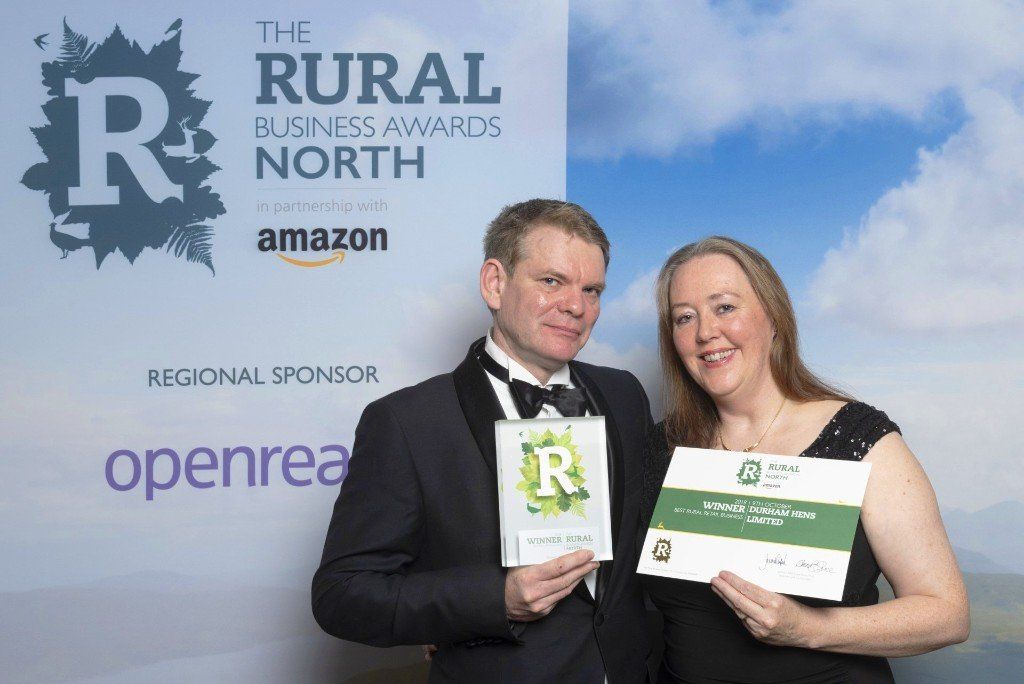
Durham Hens was short-listed for a Rural Business Award earlier this year. Alec and Margaret attended the 'North' regional event, which was held at The Last Drop Hotel and Spa in Bolton, on Tuesday, 9th October 2018. The evening was well-organised. We enjoyed the champagne reception and a three-course dinner with wine, while chatting with other finalists.
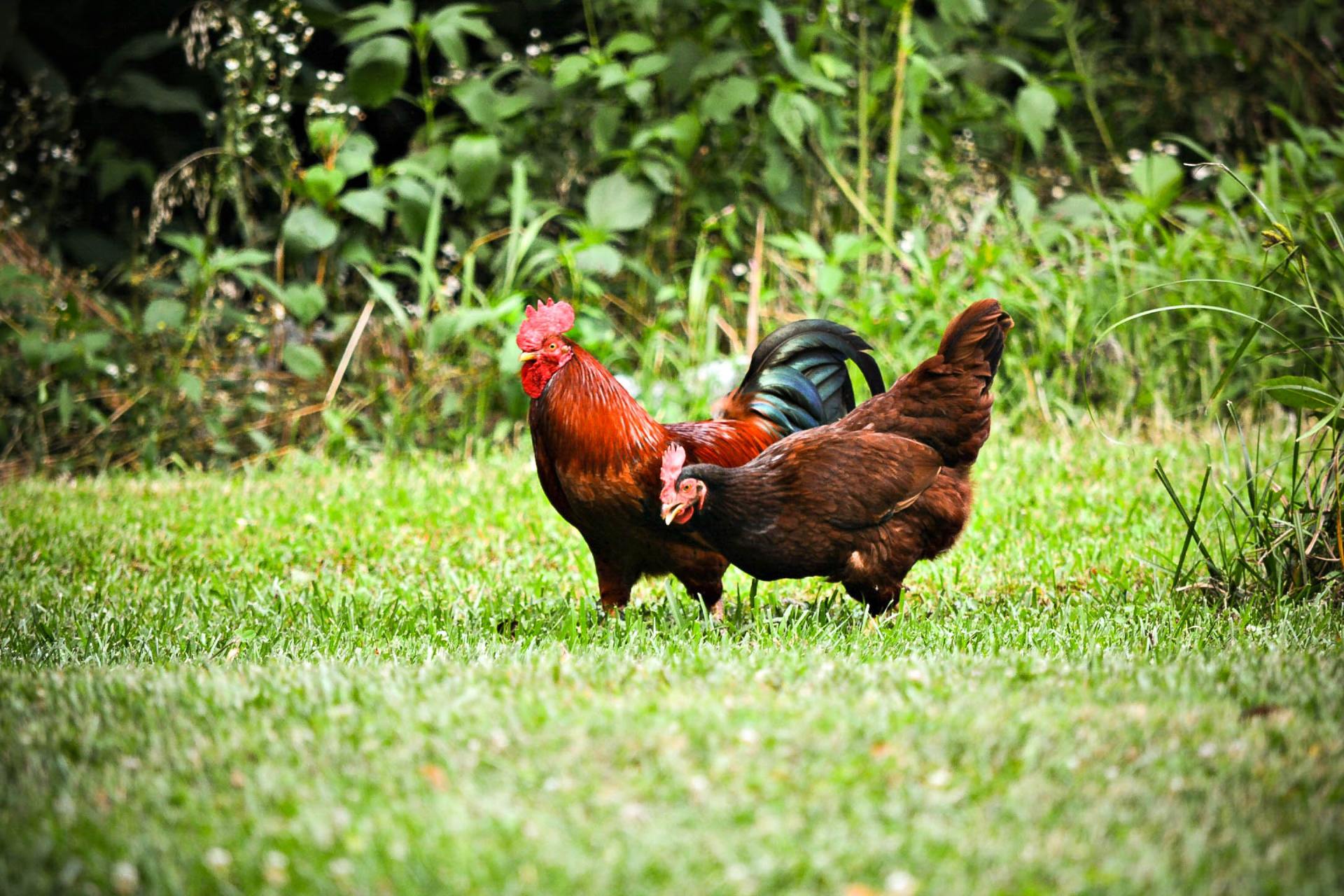
This summer, Durham Hens has hosted a record number of work placements for vet students, from three different universities: Liverpool, Edinburgh and the Royal Veterinary College, London. We have also had a student from Darlington working with us, and we wish her luck with her application for veterinary medicine. Work experience in farm settings is a vital part of veterinary courses and we are pleased to help. Most poultry farms are either egg production facilities or broiler farms raising birds for meat. At Durham Hens, we offer students a more varied experience with chicks, growers, pullets and breeding stock to care for. Our livestock is kept in exceptionally good conditions, and we have years of experience that we can share with them. In June, we were asked by a local vet to run a CPD (Continuing Professional Development) course for all of the staff in their practice. I was honoured to show them around Durham Hens, to host a hen-handling session, and to chat to them about common poultry conditions and their treatments. We had a very enjoyable day. The summer break is coming to an end now, and it's time for the local agricultural shows. Come and chat with us at: Wolsingham Show on Saturday 1st September and Sunday 2nd September Stanhope Show on Saturday 8th September and Sunday 9th September Please note that we're still open for business as usual at Tow Law on these dates.
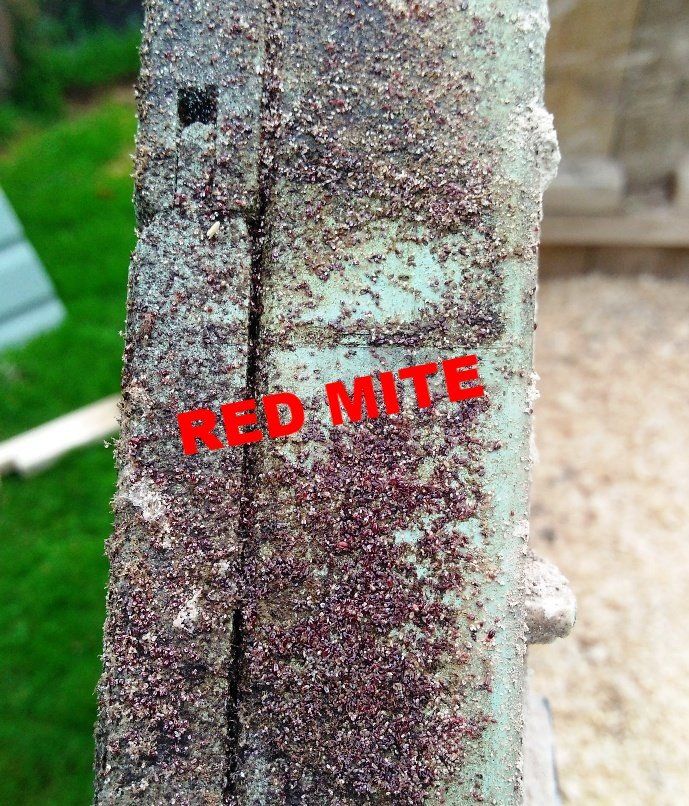
Red mite can be a serious problem in poultry sheds during the summer months. They live in hen houses, not on hens. They come out at night and suck blood from sleeping birds. If left untreated, red mite breed very quickly. Hens will become ill and die. How do I know if there are red mite in my hen house? Take a white cloth or piece of white kitchen roll out to the coop at night and rub it across the perch. Red smears on the cloth mean there are red mite present. Alternatively, the 'Red Mite Alert', available from Durham Hens, is a simple reusable device for detecting red mite. Simply attach the device to a perch and check it day or night to detect the presence of red mite. If you have a broody hen, the device can be placed in the nest box. 'Red Mite Alert' allows continual monitoring for the presence of red mite, so any infestations can be treated straight away and you can see how effective your treatment is. I have seen tiny grey things crawling in my shed. What are they? Adult red mite are actually grey in colour. They only turn red after they have ingested blood from hens. Immature red mite are white. They can live over six months without feeding so, if buying a second-hand coop, be sure to clean it thoroughly before getting hens to ensure there are no red mite left in it. What is Diatomaceous Earth? Diatomaceous Earth, also known as DE powder, is a 100% natural product that is used in poultry housing and on chickens to eliminate parasites, such as mites, lice and fleas. It can be used on all types of poultry as well as horses, pigs, sheep, goats, dogs and cats. It is made from finely ground fossil particles which are microscopically very sharp. These particles scratch through the waxy exoskeleton of insects causing them to dehydrate and die. Diatomaceous Earth does not affect eggs or meat from the birds - there is no egg or meat withdrawal time. It is approved by DEFRA and, although it is classed as food grade, please note it is not intended for human consumption. The brand we stock at Durham Hens is called Smite Organic Powder. How do I get rid of red mite? To kill red mites, dust the ends of the perches and nest boxes regularly with Smite to stop mites getting to the hens. Hens are particularly vulnerable when they are perched up at night, laying eggs or especially if they are broody. We dust every time we clean out our hen houses. If red mite has been identified, coops should be thoroughly cleaned with Smite Professional or All Mite / Poultry Shield before using DE powder. These are both powerful, concentrated, liquid cleaners for poultry houses. They kill red mite, as well as bacteria, viruses, fungi, algae etc. Use several times a year for a thorough clean and, in the case of a red mite infestation, use on a regular basis until it is clear of red mite. Both solutions are concentrated, so simply follow the instructions for preparing the solution and spray on all surfaces of the coop. I don't have red mite. How can I prevent it? Dust the coop (bedding, perches and nest boxes) with Smite Organic Powder after cleaning. Plastic hen houses are becoming more and more popular because red mite are less likely to be found in them. Also, red mite are much easier to eradicate from plastic coops. For products to help control Red Mite, please see HEN HEALTH SUPPLIES
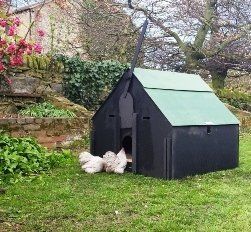
While Alec and I were on holiday in December, we received a lovely email about the Durham Hen House that Alec designed and manufactured: Just thought I'd send some thanks - albeit I think its around 6 years since we bought a hen house from you! We are up in the far north west of Scotland - had a battering from storm Caroline yesterday (90mph winds), and now a northerly blizzard, you might have seen it on the news. I've just been out battling the elements stocking up fuel for the stoves and of course, seeing to the hens. I suppose I've rather come to take it for granted that they will be fine, we've had plenty of weather over the past few years. Sure enough, in a blizzard, their house is snug and dry, draught-proof and cosy. I don't suppose we know if they are happy, but they certainly are safe and well, thanks to a very good buy from Durham Hens. H.D.

